The Serpent's Egg (1977)
Directed by: Ingmar Bergman
Written by: Ingmar Bergman
Starring: David Carradine, Gert Fröbe, Heinz Bennent, Liv Ullmann
USA/ West Germany
AVAILABLE ON DUAL FORMAT BLU-RAY AND DVD: 3rd December, from ARROW ACADEMY
RUNNING TIME: 120 mins
REVIEWED BY: Dr Lenera, Official HCF Critic
In the depressed, poverty-stricken Berlin of 1923, American-born Jew Abel Rosenberg is an out-of-work circus acrobat who goes to visit his brother and finds that he’s committed suicide. Not wanting to return to the circus, Abel moves into the room of his former sister-in-law Manuela Rosenberg, but his misery and alcoholism prevent him from finding a job while there seems to be a mystery about where Manuela goes to work every morning. Also mysterious is the fact that there have been seven strange deaths in the city. Then Manuela tells Abel that they can live in an apartment belonging to Professor Hans Vergerus, an old acquaintance of Abel’s, for free….
I’d never seen an Ingmar Bergman film up to now. Yep, never seen one. That’s probably a weird statement to make coming from someone who considers himself a ‘true’ movie fan, but it’s true and I don’t really know why. Of course I know of some of the renowned classics of world cinema that he’s made like Cries And Whispers, The Seventh Seal [quoted in Bill And Ted’s Bogus Journey], Wild Strawberries and The Virgin Spring [inspiration for Last House On The Left]. I know of his fascination with exploring subjects like the human condition, faith and mortality. I could even probably tell you if I thought a film was ‘Bergman-esque’. But I just hadn’t watched any examples of his work until I requested a screener of Arrow’s new release of The Serpent’s Egg. I’m saying all this because it means that in this review I can’t really talk about the film much in relation to other Bergman pictures, though I sometimes think that going in almost blind can have its advantages. This actually seem to be one of his least well regarded films, though upon watching it I found it to be one full of interest, if predictably gloomy and not quite as compelling as it perhaps ought to be, largely because of its main character – or rather the film’s handling of him. The strange mixture of downbeat drama, mystery and social/political commentary doesn’t entirely hang together either, while Bergman seems to be influenced by a variety of mostly related sources from German expressionism to the film Cabaret. It seems to me to be one of those films that you’re compelled to keep watching even if it’s not entirely working for you.
It was made by Bergman during a period of self-imposed exile for charges of tax evasion. Bergman originally fled to Paris, France but didn’t like it there, so he then went to West Germany, and ended up making a deal to make an English language feature to be shot there. The involvement of Dino de Laurentiis ensured that this was by far his most expensive production to that date. It had a mainly international cast with only one Swedish cast member, his frequent collaborator Liv Ullmann. Elliot Gould claimed that Bergman wrote the lead of Abel for him but that de Laurentiis overruled him. Then Richard Harris was cast but withdrew due to having contracted pneumonia during the final days of shooting Orca. Dustin Hoffman was offered the part but turned it down, while Bergman also considered Peter Falk, Robert Redford and David Bowie before David Carradine was cast, though Carradine’s tendency to fall asleep on the set caused some delays and conflict during principal photography. Bergman had planned to have a horse killed on camera to show the desperation of the German people during the Weimar Republic’s inflation crisis of 1923, but Carradine said that he would walk off the film if Bergman went ahead with his plans. A compromise was reached with the horse being killed off-screen, but the corpse then being shown, as an impoverished a woman offers up handfuls of offal to Abel. Shot at Bavaria Studios and in Munich, The Serpent’s Egg was one of Bergman’s least successful films both commercially and critically.
The first shot, possibly real footage from the period depicted in the film, is of a crowd of people moving forward in slow motion, and as a fast piece of light jazz is heard it’s repeated three times during the main titles rather jarringly, which was no doubt the intention. I pondered upon the point of this but did realise towards the end of the film its relevance. Straight away the Berlin of 1923, a place where, as the narrator tells us, “a pack of cigarettes costs four million marks and people have lost faith in the present and future days”, is evoked very well. Sometimes graceful camera pans will show off the detailed sets, through be warned that this is visually a very dark film, shot largely in browns, grays and blacks, which despite some film noir-ish use of shadows hardly makes for the most visually appealing watch, but which certainly provides us with the appropriate feeling of misery and despair. Our main protagonist is a booze-dependent, selfish loser with whom it’s hard to sympathise. The latter in itself isn’t automatically a problem in a film, but there’s little attempt to take us really close to this particular character so we at least get a sense of his point of view. He’s full of pain which sometimes comes out in anguished outbursts, finds it hard to communicate, and finds life a real struggle which I think is in common with many Bergman characters, but, while we do eventually get an explanation for some of his actions in the second half of the film, we’re not given enough insight as to why he’s this way at the beginning aside from the miserable and increasingly Jew-unfriendly environment in which he lives [okay his brother commits suicide but he was no doubt like this before]. And David Carradine, whose performance has been much criticised, doesn’t seem to try to let the viewer ‘in’ much despite performing some scenes extremely well and certainly convincing as an alcoholic, fine makeup also ensuring that he really looks like shit at times.
So he finds his brother’s brains all spattered on the wall of his apartment, the ghastly sight shown at a distance when Abel opens the door which somehow makes it more shocking than less, and Inspector Baeur [Goldfinger‘s Gert Frobe with his real voice] thinks that it’s one of seven mysterious deaths that have taken place recently. But Abel doesn’t seem to care about much else other than the demon drink and even steals his sister-in-law Manuela’s savings to buy some more. She’s also struggling to make ends meet but is trying a bit harder. Her cabaret job means that we spend a lot of time in a nightclub and see Liv Ullmann perform differing roles in a variety of outfits. Her Marlene Dietrich act isn’t the best though I don’t think it’s trying to be. We’re sometimes reminded of what’s going on in the city, such as newspapers publishing lies about gangs of Jews causing trouble. But the focus is mostly on Abel and Manuela who become a couple more through desperation than anything else. It certainly doesn’t seem to be out of love – in fact Manuela expresses more feeling for another character, Professor Hans Vergerus, whom Abel dislikes intently. But what is this nice job that Manuela goes to after the cabaret? How has she been able to acquire this nice new apartment for the both of them? Why does she fall ill and he behave in an erratic way? What’s that engine-like sound they hear at night? What’s Hans really up to? The answers that we get are sometimes predictable, sometimes not. The way that Abel is alerted to the film’s biggest revelation is rather lazy screenwriting, but the way that the film changes its look and even genre towards the end is brave and interesting. I’m not going to reveal all, but it becomes quite disturbing yet very plausible.
Despite the leisurely pace there’s quite a strong feeling of fear in the film that occasionally erupts such as when group of men beat up someone and the cops do absolutely nothing, or when the nightclub is raided by soldiers for no apparent reason and the owner has his head bashed in until he dies. The latter is quite shocking, the act only partly shown but keeping Abel’s face in the same shot which really adds to the horror. I say “for no apparent reason”, because, while the film is ostensibly in English, all the songs and indeed quite a few scenes are in German with no subtitles. This is initially annoying but in the end is certainly justifiable and adds to the unease because Abel can’t understand German any more than the majority of us. Also adding to the atmosphere are the many moments that play out at a distance, from Abel watching people in the apartments opposite Rear Window-style to him meeting a prostitute, two tiny figures shot from above, though much of the film consists of the camera following characters around in close-up with no cuts, creating an intimate, not to mention, claustrophobic, feel. German cinema’s distant past seems to be often evoked and even referenced to. Bergman doesn’t shirk from showing blood, and there’s a really realistic-looking mortuary scene, though a fight in a lift shows that action isn’t exactly his forte and the scene actually seems intrusive, perhaps put in as an attempt to appeal more to the American market. The Big Theme, to which the title [a quote from William Shakespeare’s Julius Caesar] refers, seems to be the rise of Nazism, the film taking place at the same time as Hitler’s first attempt to gain power. Despite that bid failing, we’re still given a sense of how such a horrible movement was able to grow and become popular in a country where society seemed to be crumbling, people were unhappy and many just wanted something to latch on to. The parallels with things happening today in so many places around the world are so obvious that I don’t really need to go into the subject.
There’s no musical score in the film, just Rolf A. Wilhelm’s cabaret pieces which are in the Kurt Weill style. I think I’d only seen Ullmann in one previous film, that notorious musical one. She seemed ill at ease in that movie, while here she’s magnificent and never less than convincing except for a few strange moments when she overacts, like when her character’s landlady says that Abel has to move out and the two of them suddenly yell at each other rather unnaturally. I don’t know if Bergman understood much English or not, but I have the feeling that his possible inexperience with the language, and the fact that this was a far ‘bigger’ film than what he was used to making, resulted in it being harder for him to give everything his full attention and for everything to turn out exactly the way he wanted. But then the fact that The Serpent’s Egg seems a bit ‘off’ in a way adds to its effect. I liked it quite a bit and despite not always working I think it’ll leave a lasting impression, hence the fairly high score. If this is one of Bergman’s worst, then bloody hell most of his other work must be good.
Rating: 









Arrow’s Blu-ray of The Serpent’s Egg looks very good for the most part. Due to the colour schemes used, it was never going to be a visually gorgeous release, and there’s the odd shot that doesn’t look fully restored and looks a bit splotchy, though a certain softness at times in the image can be said to add to the feel and was maybe part of the original release. This is still probably the best the film has ever looked, with lots of great detail during close-ups. Sound is well balanced yet kept subtle for the most part.
Arrow have ported over all the special features from the Region ‘1’ MGM DVD and added one of their own. The audio commentary by Carradine initially sounds like it’s going to something of a chore what with all the gaps, but he says a hell of a lot of interesting stuff. How Bergman worked, insights into acting, interesting tidbits like Bergman keeping studio doors open so it could be seen that the cast members were cold and you could see their breath, De Laurientiis ordering the cutting of a politically incorrect speech his character had – it’s all relevant and you’ll be glad you heard it. He may not says loads, but what he says is always worth it. He’s clearly proud of the film. The new featurette Bergman’s Egg is 15 minutes of Bergman admirer Barry Forshaw going through most of Bergman’s film before focusing on The Serpent’s Egg and giving a balanced appraisal of it. This was extremely enlightening to me as I wanted to know more about his work and where this particular film fits in. For some reason it suddenly gets louder about half way through and I wish that it didn’t have annoying jump cuts of Forshaw, but these are unimportant flaws really. The 13-minute Away From Home from the DVD has writer Marc Gervais, David Carradine and Liv Ullman tell us much of what we’ve already learnt about the film and its reception, but it’s good to see the two and both offer some valuable viewpoints. And German Expressionism, which lasts only five minutes and which could have easily been cut into the previous featurette, has Gervais give his explanation as what The Serpent’s Egg essentially is: a film from the German 1920’s made with the benefit of now knowing what followed in that country. A generally illuminating group of special features for a film that’s probably never been very popular.
It seems that, judging by what’s said in the special features, The Serpent’s Egg is a decidedly atypical film from somebody regarded by many as the finest film maker who ever lived. But it can’t be that poor if it’s inspired me to check out some of his other work. Arrow’s release of this flawed but fascinating curio comes Recommended by the Doc.
DETAILS
*High Definition Blu-ray (1080p) presentation
*Original English mono audio (uncompressed LPCM)
*Optional English subtitles for the deaf and hard-of-hearing
*Audio Commentary by actor David Carradine
*Bergman’s Egg – a newly filmed appreciation by critic and author Barry Forshaw
*Away From Home, archival featurette including interviews with David Carradine and Liv Ullman
*German Expressionism, archival interview with Author Marc Gervais
*Stills gallery
*Theatrical trailer
*Reversible sleeve featuring two artwork choices
*FIRST PRESSING ONLY: Illustrated collector’s booklet featuring new writing on the film by author Geoffrey Macnab

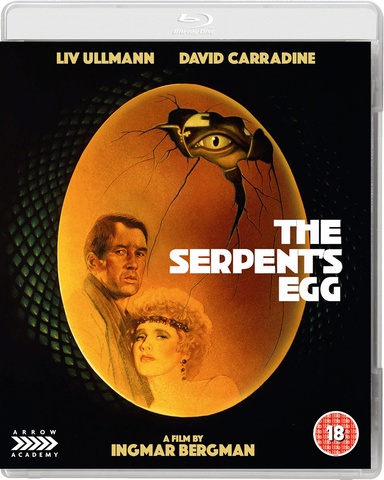
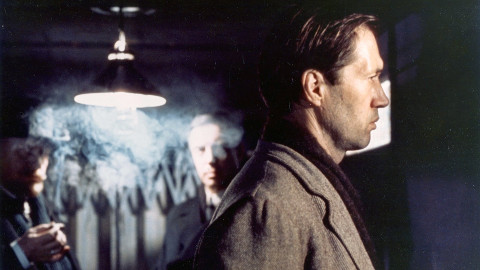
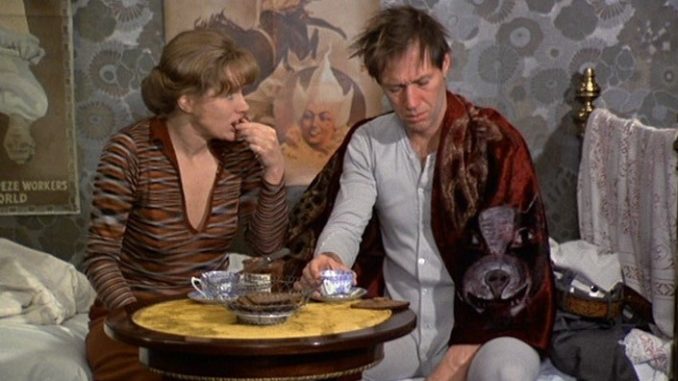


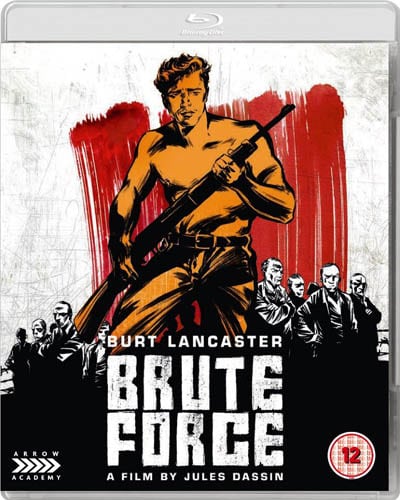
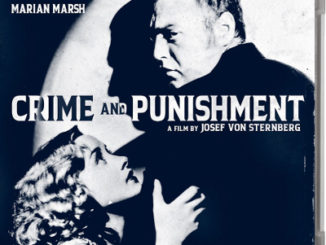
Be the first to comment